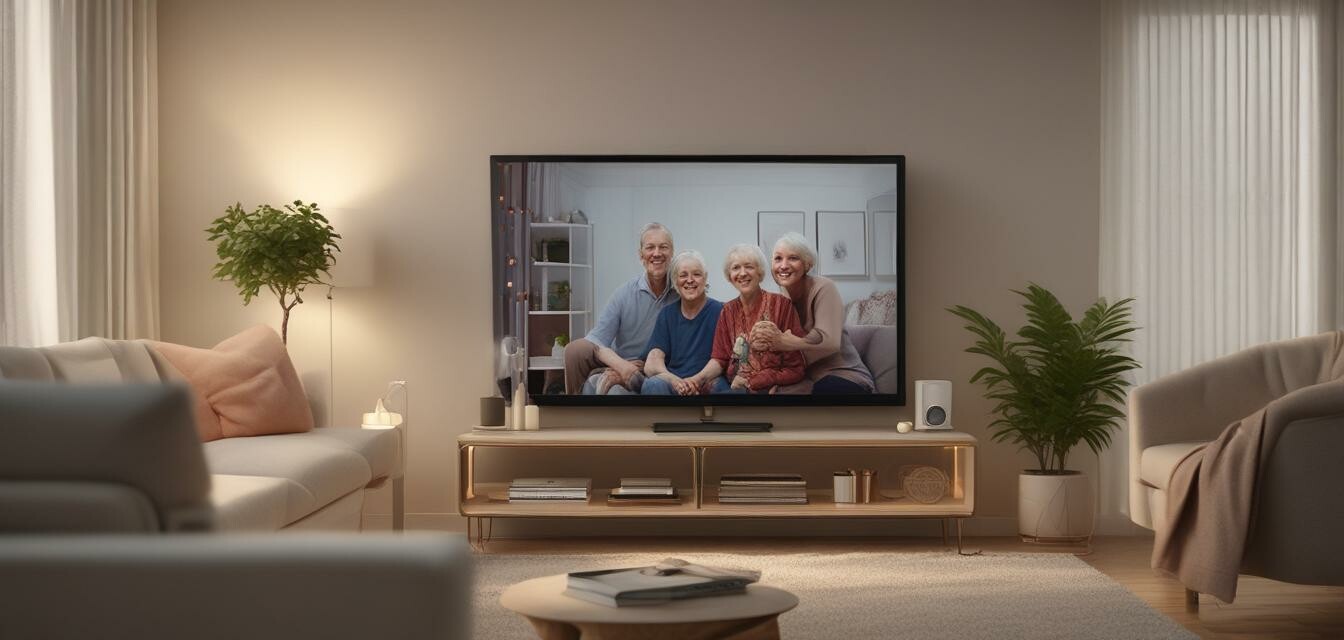
Essential Smart Tech for Dementia Care
Key Takeaways
- Smart technologies can significantly aid in dementia care.
- Connected home assistants enhance communication and safety.
- Health monitoring devices provide necessary updates for caregivers.
- Home security solutions ensure peace of mind.
- Smart lighting systems help create a safe living space.
Caring for seniors with dementia can be a challenging endeavor, but with the advancement of technology, there are numerous smart home gadgets designed to assist caregivers and improve the quality of life for those affected. This guide explores essential smart technologies that can enhance safety, communication, and independence for seniors with dementia.
Benefits of Smart Technologies in Dementia Care
Smart technologies offer valuable support by providing caregivers with tools to monitor and assist seniors without compromising their dignity or independence. Here are some key benefits:
- Enhanced Safety: Smart home devices can alert caregivers to potential hazards.
- Improved Communication: Connected home assistants allow for easy communication between seniors and caregivers.
- Remote Monitoring: Health monitoring devices facilitate real-time updates on a senior’s wellbeing.
Essential Smart Technologies for Dementia Care
Below is a table outlining essential smart technologies that can assist in dementia care:
| Technology | Purpose | Benefits |
|---|---|---|
| Connected Home Assistants | Voice-activated devices that assist with daily tasks. | Facilitate communication and control other smart devices. |
| Health Monitoring Devices | Wearable tech for tracking health metrics. | Provide caregivers with critical health data. |
| Home Security Solutions | Smart locks, cameras, and doorbells for a secure environment. | Increases safety and allows for remote access. |
| Smart Lighting Systems | Automated lights that can be programmed for safety. | Helps prevent falls and creates a comfortable atmosphere. |
| Smart Entertainment Systems | Devices for easy access to music, movies, and games. | Engages seniors and promotes mental stimulation. |
Smart Home Gadgets in Action
To understand the practical application of these technologies, it's important to consider how they work together to create an effective support system.
Scenario 1: Morning Routine
Imagine a senior who starts their day with the help of a connected home assistant. They can ask the assistant for the day's weather, listen to their favorite music, and receive reminders for medication. The smart lighting system automatically brightens as they wake up, reducing the risk of trips and falls in dim lighting.
Scenario 2: Monitoring Health
Throughout the day, health monitoring devices track vital signs. If any anomalies are detected, notifications are sent to the caregiver's smartphone. This scenario provides peace of mind for both the senior and the caregiver.
Scenario 3: Evening Safety
As evening approaches, smart lighting systems adjust automatically, creating a cozy atmosphere. Home security solutions ensure that doors are locked, allowing the senior to enjoy their evening without worries.
Pros
- Increases independence for seniors.
- Enhances communication between seniors and caregivers.
- Provides real-time data for informed decisions.
- Improves safety and comfort in the home.
Cons
- Initial setup can be complicated for some users.
- Device costs may add up, impacting budgets.
- Requires reliable internet connectivity.
Tips for Choosing Smart Technologies
Beginners Section
- Assess your needs based on the individual's routine.
- Focus on usability—choose devices that are easy to operate.
- Look for products with good customer support.
- Consider devices that are compatible with existing technology.
Conclusion
Smart technology can play an invaluable role in dementia care, providing necessary support for both seniors and caregivers. By choosing the right devices—from home security solutions to smart lighting systems—you can create a safer, more comfortable environment for your loved ones. By incorporating these technologies, you can foster a sense of independence while ensuring that the unique needs of seniors with dementia are met. For more valuable insights on choosing the right solutions for your home, check out our Buying Guides.